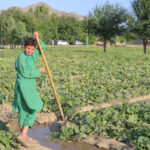UNITED NATIONS, July 14 (Xinhua) — The trendlines for conflict-related sexual violence are worsening as more wars are being fought, said Pramila Patten, the UN secretary-general’s special representative on sexual violence in conflict, on Friday.
The world is facing the highest number of conflicts since World War II, while the number of people forced to flee their homes has reached a first-ever record of 110 million, she told a Security Council open debate on conflict-related sexual violence.
“Rising militarization and arms proliferation are bringing conflicts across the globe to boiling point, creating the conditions for unimaginable and unrelenting cruelty. Gang rape, sexual slavery and other forms of sexual violence are being used as a tactic of war, torture, and terrorism to subjugate and displace populations,” she said.
In this time of unprecedented global turbulence, new threats have emerged from the largely ungoverned digital space. Climate-related insecurity and displacement have exacerbated competition for scarce resources, in turn, increasing intercommunal violence, including sexual violence, she added.
The UN secretary-general’s latest report records 2,455 UN-verified cases of conflict-related sexual violence committed in the course of 2022 in 20 situations of concern, she noted.
Women and girls account for 94 percent of the verified cases. Children represent 32 percent of the verified incidents, with girls making up 97 percent of those cases involving children, said Patten.
The report does not reflect the global scale or prevalence of this chronically underreported and historically hidden crime, she said. “We know that for every woman who comes forward, many more are silenced by social pressures, stigma, insecurity and the paucity of services.”
The annual report clearly demonstrates the emboldening effects of impunity, said Patten. “The reality is that until we effectively raise the cost and consequences for committing, commanding or condoning sexual violence, we will never stem the tide of such violations.”
This year, 49 parties, most of them non-state actors, are listed for systematically committing sexual violence. Over 70 percent are persistent perpetrators, having appeared on the list for five or more years without taking remedial or corrective action, she noted.
It is critical to ensure greater coherence between the secretary-general’s listing and the targeted and graduated measures being imposed by UN sanctions committees. If applied in a timely and consistent manner, sanctions can change the calculus of parties that operate on the assumption that rape is cost-free — or even profitable — in the political economy of war in which women are trafficked, traded and sold, she said.
In terms of the way forward, she said the report recommends gender-responsive justice and security sector reform; strengthening holistic and multi-sectoral services for survivors; curtailing the flow of small arms and light weapons; and political and diplomatic engagements to address sexual violence in cease-fire and peace agreements.
“Today we know more than ever before about what motivates sexual violence; who the perpetrators are; and the service response required by survivors. We know that these crimes do not occur in a vacuum, but are tied to broader security dynamics. Therefore, it is essential to ground prevention efforts in this enhanced knowledge,” she said. “We must ensure implementation of (Security) Council resolutions while adapting our actions to today’s conflicts and emerging global challenges, including threats from the largely ungoverned digital space and climate-related insecurity.”
The time is now to double down on the institutional and accountability frameworks put in place by successive resolutions. There is a need to act urgently and with sustained resolve to save succeeding generations from this scourge, she said. ■

Pramila Patten (Front), the UN secretary-general’s special representative on sexual violence in conflict, speaks at a Security Council meeting at the UN headquarters in New York, on July 14, 2023. The trendlines for conflict-related sexual violence are worsening as more wars are being fought, said Pramila Patten on Friday. (Eskinder Debebe/UN Photo/Handout via Xinhua)













